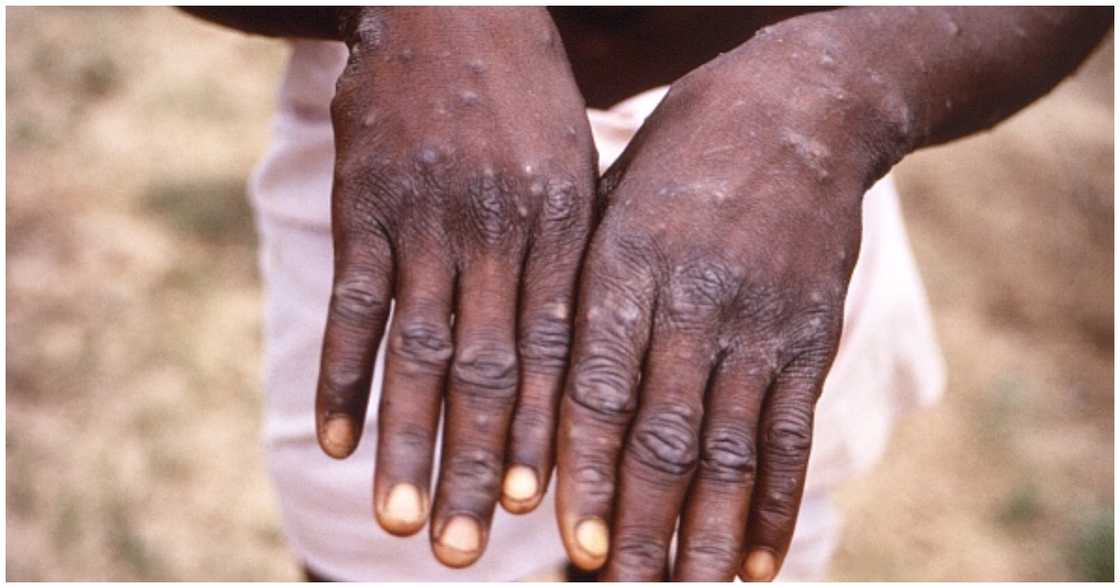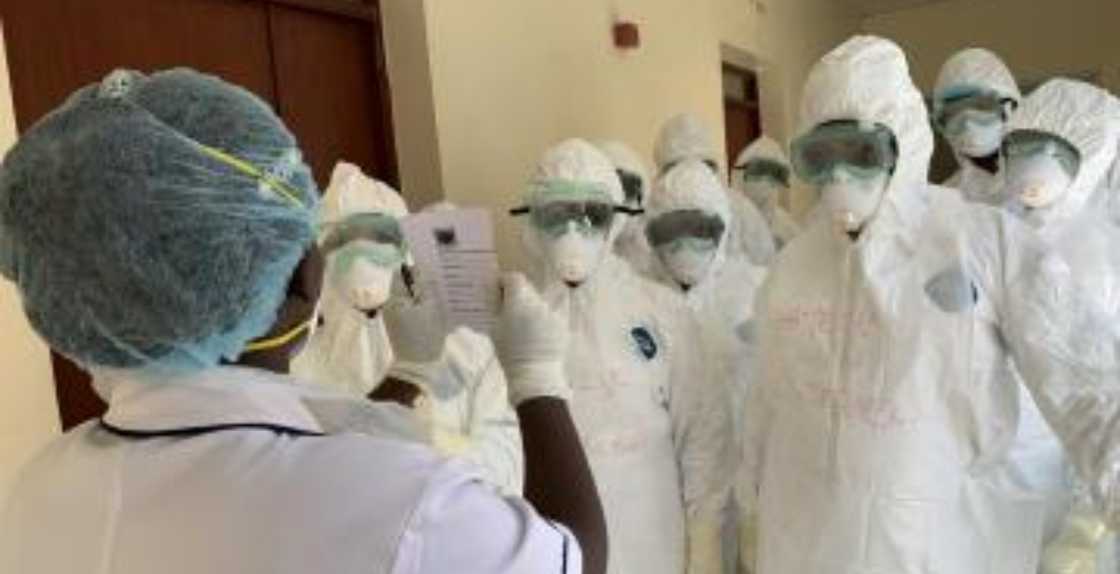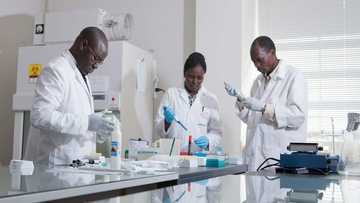Monkeypox In Ghana: Symptoms, Treatment And How To Avoid Contracting The Disease
- Ghana has recorded five cases of the Monkeypox in three regions: Eastern, Western, and Greater Accra
- The Ghana Health Service (GHS) has said the cases have been in Ghana since May 24, 2022, but no deaths have resulted from the disease
- This explainer highlights the symptoms, treatment and prevention of the zoonotic viral disease
PAY ATTENTION: Update YEN.com.gh App for free: The old version will be disabled soon
Monkeypox was first detected in humans in 1970 in Africa and since then most cases have been reported in rural and rainforest areas. For decades only a few cases were reported sporadically. Then in 2017, there was a sudden spike, with more than 2,800 suspected cases reported in five countries.
This surge continued, peaking in 2020 with more than 6,300 suspected cases, with the Democratic Republic of the Congo accounting for 95% of the total. The numbers then dropped in 2021 to around 3,200 suspected cases. The reasons for these spikes are not fully known but may be due to deforestation and the encroachment of people into the habitats of Monkeypox animal hosts.

Source: Getty Images
According to the John Hopkins Bloomberg School of Public Health, Monkeypox does not come from monkeys, but it’s called monkeypox because it was first detected in a monkey in Africa. However, the reservoir for the virus is in rodents, specifically rodents in Central and West Africa.
Virologists have been aware of monkeypox for decades, and have been interested in it mostly because it’s a cousin of smallpox. It is a related orthopoxvirus. The symptoms, although somewhat less severe, are quite similar to smallpox. In most cases, it causes relatively mild illness, meaning most people don’t end up in the hospital with it.
PAY ATTENTION: Follow us on Instagram - get the most important news directly in your favourite app!
There are two strains of Monkeypox: one in the Congo Basin, which tends to be more severe, and another in West Africa, which is less severe. The West African strain seems to be causing the current outbreak, says John Hopkins.
Ghana records Monkeypox

Source: Facebook
The Ghana Health Service on Wednesday, June 8, 2022, made public for the first time that the country has confirmed its first cases of the Monkeypox disease.
According to the GHS, the cases, a total of five at the time of making the public announcement, were part of 12 suspected cases that were tested. The confirmed cases are in the Eastern, Western, and Greater Accra regions. The first case was recorded in Ghana on May 24, 2022. There have been no recorded deaths.
For weeks, the disease has been breaking out in small numbers in Europe, the Middle East, and the United States among other parts of the world outside Africa.
The World Health Organisation (WHO) has said since May 13, 2022, cases of Monkeypox have been reported from 12 countries that are not endemic to the virus. Although investigations are ongoing, reported cases so far have no travel links to endemic areas.
Again, WHO said that based on current information, cases have mainly been identified amongst men who have sex with men seeking care in primary care and sexual health clinics. WHO said this is, however, not exclusive.
What is Monkeypox?

Source: Getty Images
The Monkeypox is a zoonotic disease. This means it is transmitted from animals to humans. Monkeypox is caused by the Monkeypox virus. The disease is endemic in Nigeria and Cameroon, according to the Ghana Health Service. It is transmitted from infected animals like squirrels, rats, monkeys etc.
An infected person can transmit to another infected person through the following means:
- Skin-to-skin contact
- Face-to-face contact
- Mouth-to-mouth contact
However, it can also spread through touching bedding, towels, clothing or objects used by an infected person.
How to avoid contracting Monkeypox

Source: UGC
Director-General of the GHS, Dr. Patrick Kuma-Aboagye at the press conference on Wednesday, June 8, said apart from avoiding skin-to-skin contact and frequent cleaning of surfaces of objects, the public can do the following to avoid contraction:
- Make sure your hands are clean, object surfaces must also be cleaned regularly to avoid any spread.
- Also, wear mask if you can’t avoid close contact with a person who is infected, especially when handling towels and cloths.
Signs and symptoms
- Fever
- Swollen lymph nodes
- Headaches
- Muscle and backaches
- General bodily weakness
- Rash with blisters on face, hands, feet, body, eyes, mouth or the private parts
Treatment
There is currently no specific treatment for Monkeypox. Most cases are mild to moderate but symptomatic treatment for mild symptoms such as antipyretics for fever and analgesics for pain.
Also:
- Skin lesions should be kept clean
- Adequate nutrition and rehydration are important
There is a vaccine for Monkeypox recently approved by some countries for which supplies are limited. Ghana currently does not have the Monkeypox vaccines. Prevention remains key for Monkeypox.
PAY ATTENTION: check out news exactly for YOU ➡️ find "Recommended for you" block and enjoy!
Source: YEN.com.gh





